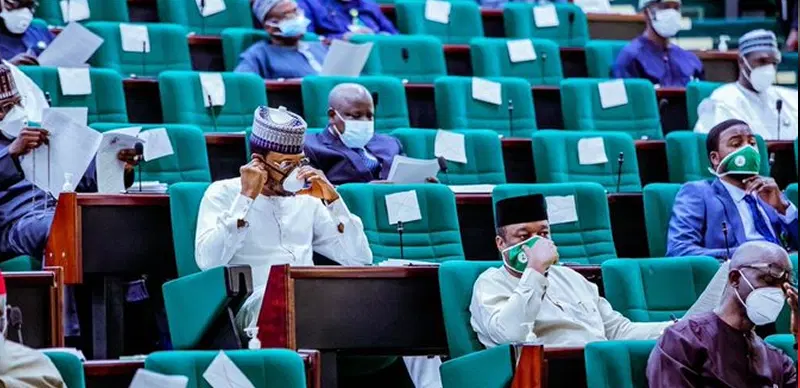A recent report has revealed that the Federal Government is owing the Central Bank of Nigeria the sum of twenty-two trillion naira, leaving analysts fuming.
According to The PUNCH, FG, in August 2022, borrowed N1.46tn from the Central Bank of Nigeria through Ways and Means Advances, raising its debt to the Apex bank from N20.61tn in July 2022 to N22.07tn in August 2022.
Data from the CBN reveals that the Federal Government borrowed a total sum of N4.61tn from the apex bank between January and August.
The Debt Management Office has said that the Federal Government’s N22.07tn debt to the Apex bank is not part of the country’s total public debt stock, which stood at N42.84tn as of June 2022.
While the public debt stock only includes debts of the Federal Government of Nigeria, the 36 state governments, and the Federal Capital Territory, Ways and Means Advances is a loan facility through which the CBN finances the shortfalls in the government’s budget.
According to Section 38 of the CBN Act, 2007, the apex bank may grant temporary advances to the Federal Government with regard to temporary deficiency of budget revenue at such rate of interest as the bank may determine.
The CBN Act reads in part, “The total amount of such advances outstanding shall not at any time exceed five per cent of the previous year’s actual revenue of the Federal Government.
“All advances shall be repaid as soon as possible and shall, in any event, be repayable by the end of the Federal Government financial year in which they are granted and if such advances remain unpaid at the end of the year, the power of the bank to grant such further advances in any subsequent year shall not be exercisable, unless the outstanding advances have been repaid.”
Even though CBN has lamented on its official website, how the Federal Government’s borrowing from it through the Ways and Means Advances could have adverse effects on the bank’s monetary policy to the detriment of domestic prices and exchange rates.
“The direct consequence of central banks’ financing of deficits are distortions or surges in monetary base leading to adverse effect on domestic prices and exchange rates i.e macroeconomic instability because of excess liquidity that has been injected into the economy,” it said.
Despite warnings from the World Bank, other organisations and experts, the Federal Government has kept borrowing from the CBN to fund budget deficits.
The World Bank, in particular, had in November last year, warned the Nigerian government against financing deficits by borrowing from the CBN through the Ways and Means Advances, saying this put fiscal pressures on the country’s expenditures.
In a recent statement by the Managing Director/Chief Executive Officer, Cowry Asset Management Limited, Mr Johnson Chukwu, said the central bank lending put pressure on the exchange rate and the inflation rate, with “liquidity that has no productivity attached to it coming into the system.”










